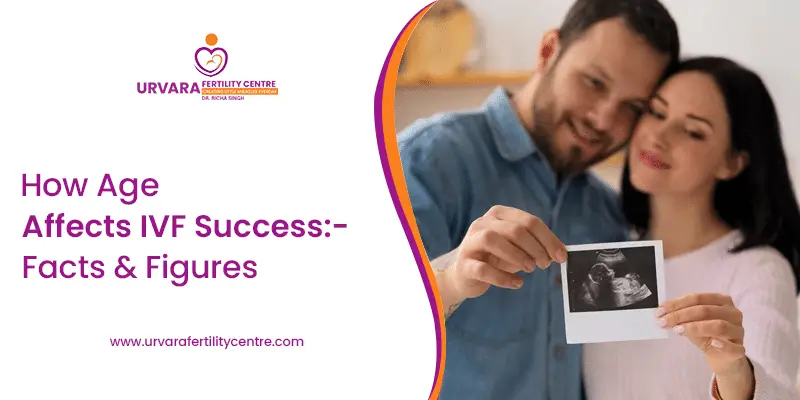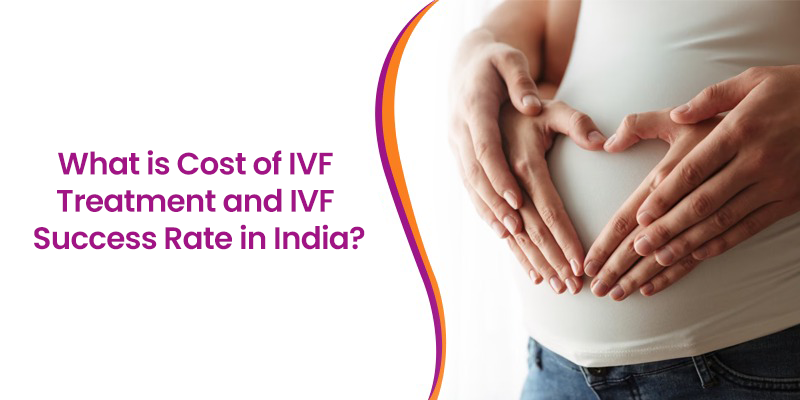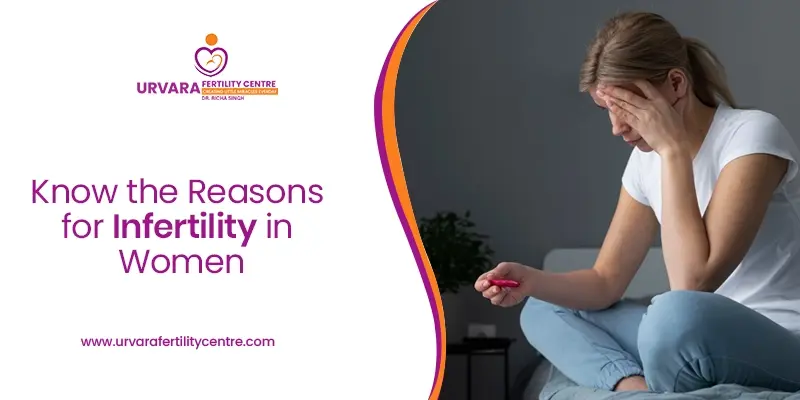Age is one of the most important factors that affect the success of IVF (In Vitro Fertilization). Knowing how age affects IVF outcomes can help prospective parents set realistic goals and make informed choices.
In this blog, we will explain in a clear and easy to understand manner how a woman’s age affects the success rate of IVF. We will provide facts and figures to help you understand the realities of ageing and IVF. Whether you’re in your 20s, 30s, 40s, or above this information can guide you in planning your IVF journey.
Join us as we explore how age affects IVF success, so you can better prepare for this important step toward parenthood.
Understanding IVF
IVF is a process where an egg is fertilized by sperm outside the body in a laboratory dish. The resulting embryo is then transferred to the woman’s uterus in the hopes of achieving pregnancy. Although it seems relatively simple, this process is affected by many factors, of which age is one of the most important.
The Impact of Age on Female Fertility
As women age, their fertility naturally decreases due to changes in both the quantity and quality of their eggs.
- Egg Quality: As women get older, the quality of their eggs decreases. This means that the eggs are less likely to be successfully fertilized. Even if they are fertilized, they still have a low chance of developing into a healthy fetus.
- Egg Quantity: Women are born with a limited number of eggs. As they get older, the number of viable eggs decreases. When a woman reaches her mid-30s, the rate of this decline accelerates, reducing the chances of successful fertilization.
IVF Success Rates By Age
IVF success rates differ greatly depending on age. According to data from the Society for Assisted Reproductive Technology (SART) and other studies:
Chances of IVF Success Under 35 Years Old:
Women under the age of 35 have the highest chances of IVF success. On average, about 40-50% of IVF cycles result in a live birth for women in this age group. This higher success rate is because younger women generally have better quality and more eggs. Healthy eggs are more likely to be fertilized and develop into a healthy embryo, increasing the chances of pregnancy. Overall, young women benefit from higher quality and greater numbers of viable eggs, leading to better IVF outcomes.
Chances of IVF Success Between 35-37:
For women aged 35 to 37, the chances of IVF success drop slightly to around 30–40%. This is still good, but you may notice changes as the quality and quantity of eggs starts to decline rapidly at this age.
Chances of IVF Success Between 38-40:
For women aged 38 to 40, the success rate of IVF drops to around 20-30%. This deficiency becomes more noticeable as egg quality decreases, and chromosomal problems become more likely. This means it is harder for the eggs to fertilize and develop into healthy embryos. So, even though IVF can still work for women in this age range, the chances of getting pregnant are lower than for younger women. This is important for women in this age group to know when considering IVF treatment.
Chances of IVF Success Between 41-42:
At this age, the chances of IVF working become much less likely. It is successful only 10-20% of the time. Therefore, many fertility clinics may suggest using someone else’s eggs to increase your chances of getting pregnant.
Chances of IVF Success Over 42 Years Old:
For women over the age of 42, the chance of having a baby from their own eggs through IVF is usually less than 5%. As women age, the quality and number of their eggs decrease, making it harder to get pregnant. However, using eggs from a donor may have a greater chance of success.
Factors Affecting IVF Success Beyond Age
If age is a primary factor, then other factors also play a role in the success of IVF:
1. Health and Lifestyle:
- General Health: A woman’s overall health can affect the success of IVF. Conditions such as obesity, diabetes, and high blood pressure can reduce the chances of a successful pregnancy.
- Lifestyle Choices: Smoking, excessive alcohol consumption, and poor diet negatively impact fertility. Women who adopt a healthy lifestyle are more likely to have better IVF results.
2. Male Factor:
- Male fertility problems can also affect the success of IVF. Sperm quality, quantity and motility are important for successful fertilization. Age can affect male fertility, but generally to a lesser extent than female fertility.
3. IVF Clinic and Protocols:
- The expertise of the IVF clinic and the protocols they use can greatly impact success rates. Clinics with more experience and advanced technology tend to have higher success rates.
4. Number of IVF Cycles:
- Multiple IVF cycles improve success rates. Although a single cycle may not result in pregnancy, multiple cycles increase the chances of success.
Improving IVF Success Rates for Older Women
For women over the age of 35 considering IVF, there are several strategies to increase the chances of success:
1. Pre-Treatment Health Optimization:
- Ensuring optimal health before starting IVF can improve outcomes. This includes managing any chronic health conditions, maintaining a healthy weight, and adopting a nutritious diet.
2. Use of Donor Eggs:
- The chances of a successful pregnancy can be greatly increased by using donor eggs from younger women. Donor eggs are usually from women in their 20s or 30s, offering better quality and higher success rates.
3. Genetic Screening:
- Preimplantation genetic testing (PGT) can help identify chromosomally normal embryos for transfer, increasing the chance of a successful pregnancy and reducing the risk of miscarriage.
4. Advanced IVF Techniques:
- Techniques such as intracytoplasmic sperm injection (ICSI), in which a single sperm is injected directly into an egg, may help overcome some male infertility problems.
- Assisted hatching, in which the outer layer of the embryo is thinned or broken down to help it implant in the uterus, may also be beneficial.
Emotional and Psychological Considerations
The IVF journey can be emotionally and physically challenging, especially for older women. Here are some ways to manage the emotional and psychological aspects:
1. Counseling and Support Groups:
Seeking help from a counsellor or joining support groups can provide emotional relief and practical advice from others going through similar experiences.
2. Open Communication:
Maintaining open communication with your partner, family, and friends can help reduce stress and provide a support network.
3. Mind-Body Practices:
Techniques such as yoga, meditation, and acupuncture can help reduce stress and improve overall health during the IVF process.
Conclusion
Age is a key factor in IVF success, with younger women generally experiencing higher success rates. However, women over the age of 35 can still have successful pregnancies through IVF, especially with the aid of advanced techniques and lifestyle changes. Understanding the impact of age on IVF success can help prospective parents make informed decisions and prepare for the journey ahead.
Although the path can be challenging, many couples find happiness and satisfaction through IVF, no matter what obstacles they face along the way.
In summary, while age does affect IVF success rates, various strategies can help improve the chances of a successful pregnancy. By staying informed and getting the right support and medical care, women of all ages can navigate the complications of IVF with hope and confidence.






